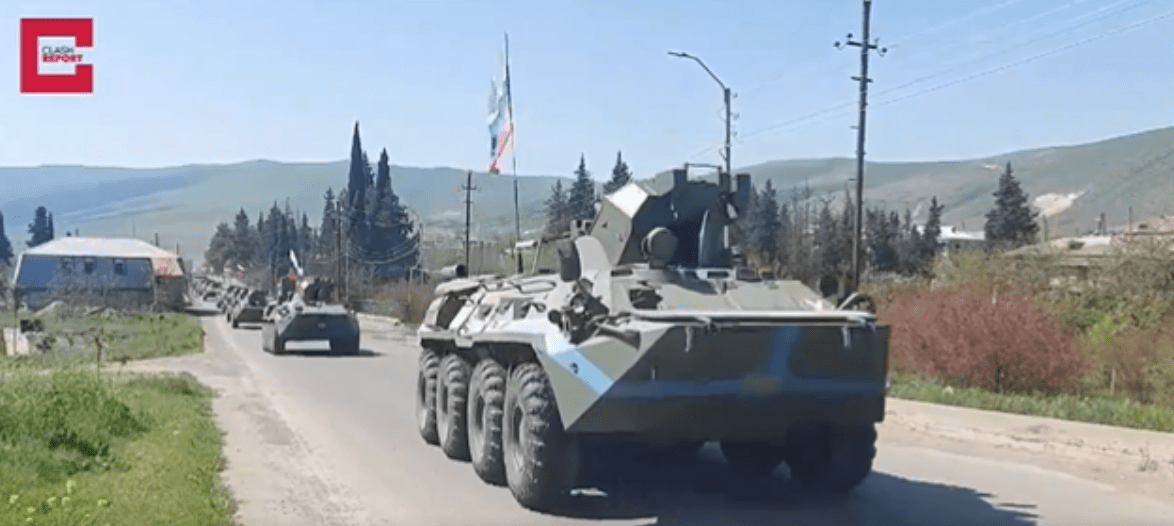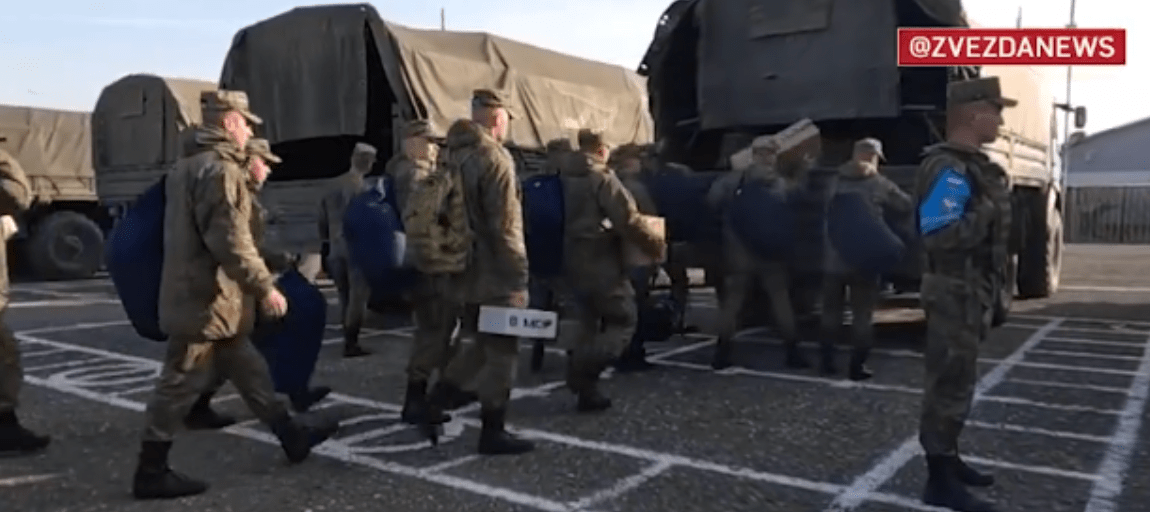Russia’s Premature Withdrawal, Withered Force
Recent Articles
Author: Nicholas Castillo, Toghrul Ali
04/25/2024
On April 16, footage showing the alleged withdrawal of Russian peacekeepers from Azerbaijan’s Karabakh region started circulating in regional social media. After four years of Russian military presence in Azerbaijan, Moscow decided to pull back its troops from Karabakh, essentially putting an end to Russia’s mediation efforts between Armenia and Azerbaijan. The early cessation of the Russian peacekeepers' mission in Karabakh, symbolic of Russia’s waning influence in the South Caucasus, provides a historic opportunity for Azerbaijan and Armenia to achieve peace bilaterally. Following speculation that Russian peacekeepers would remain in Azerbaijan until at least 2025, their premature withdrawal has notably altered the geopolitical landscape. Consequently, Azerbaijan stands as the only country in the South Caucasus without the presence of Russian troops within its sovereign territories.
The reports of Russia’s withdrawal were later confirmed by the Kremlin's spokesperson Dmitry Peskov, as well as by the Assistant to the President of Azerbaijan and Head of the Foreign Policy Affairs Department of the Presidential Administration Hikmet Hajiyev, who stated that the “early withdrawal of Russian peacekeepers had already begun.” The Turkish Ministry of Defense also announced during a press briefing that the parties are coordinating regarding the “completion of the mission” of the Turkish-Russian Joint Monitoring Center, which was opened in January 2021 in Aghdam to observe ceasefire violations in Karabakh.
 Footage posted to X claiming to show Russian Forces Departing Karabakh
Footage posted to X claiming to show Russian Forces Departing Karabakh
 Footage Shown by Russian State Media on Telegram Showing Peacekeepers Returning
Footage Shown by Russian State Media on Telegram Showing Peacekeepers Returning
Russian peacekeeping soldiers were initially deployed to Karabakh following the 2020 war over the region between Armenia, Azerbaijan, and Yerevan-backed separatist forces. The mission called for the deployment of 1,960 personnel equipped with light weaponry, as well as 90 armored personnel carriers and 380 motor and special vehicles. The fact that the ceasefire agreement stipulated the presence of Russian peacekeepers appeared to be a bulwark for Russia’s influence over the South Caucasus, long viewed within Moscow’s sphere of influence.
Speculation had circulated that, given that Russian peacekeepers were slated to remain until 2025, they’re role may shift to post-conflict duties such as humanitarian efforts or overseeing Baku’s re-acquisition of the territory. The peacekeepers had, following September's Azerbaijani victory, established new checkpoints, assisted in disarming ethnic-Armenia militia, and provided services to the local Armenian community as they left Karabakh. On April 4, Azerbaijan’s Mine Action Agency (ANAMA) announced that Russian peacekeepers were to be involved in the demining process in Karabakh. However, with tasks such as disarming complete, and with the region nearly totally empty of an Armenian population, Russia’s forces departed.
One of the main drivers behind the decision to withdraw peacekeepers has undoubtedly been Russia’s increasing involvement in Ukraine. Since the start of the war, Russia has reportedly relocated thousands of its troops in Georgia to Ukraine. Russian mercenaries operating for the Wagner Group have also been reportedly moved from Libya and Syria to Ukraine. Russia continues to maintain military presence in several former Soviet countries, including Armenia, Belarus, Georgia (breakaway regions South Ossetia and Abkhazia), Kazakhstan, Kyrgyzstan, Moldova (breakaway region Transnistria), and Tajikistan. However, the recent actions of some states, such as Armenia and Kyrgyzstan, to distance themselves from the Russian-led security bloc Collective Security Treaty Organization (CSTO), highlight a noticeable division emerging within the region. Given the persistent likelihood of a prolonged conflict in Ukraine, it appears that Russia's military dominance in the post-Soviet sphere, traditionally regarded as its "sphere of influence," may be diminishing.
Commenting on the Russian troops’ withdrawal from Azerbaijan, Chairman of the Caspian Policy Center’s (CPC) Board of Directors and former U.S. Ambassador and co-Chair of the Organization for Security and Cooperation in Europe (OSCE) Minsk Group Richard Hoagland said that, “There really is no need for the reported 2,000 Russian ‘peacekeepers’ to remain deployed there,” especially since Azerbaijan has reclaimed from Armenia and once again governs the Karabakh region and the previously occupied surrounding territories. “This is especially true since Baku and Yerevan remain committed to achieving permanent peace through their ongoing negotiations. It’s likely that Moscow wants to redeploy those Russian military personnel to support its ongoing criminal war in Ukraine,” Hoagland added.
However, the Russian troops that left Karabakh have for the time being moved to Armenia. “While these troops decamped and crossed into Armenia, it is uncertain how long their stay will be,” said Caspian Policy Center’s Eric Rudenshiold, who served for ten years as a senior OSCE official who frequently worked in the region. “Baku and Yerevan are productively working to demarcate borders, so there is even less reason for Russian troops to stay where they are not wanted.” In February of this year, Russian border forces were asked to leave Yerevan’s Zvarnots Airport by senior Armenian officials who now say the newly relocated peacekeeping troops cannot stay either.